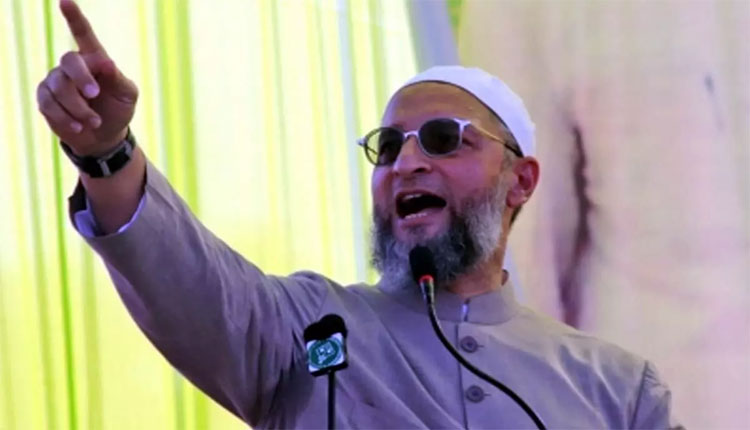Patna: Political parties are actively strategising and aligning their electoral equations, even though the Bihar Assembly elections are still some time away. Among them, the All India Majlis-e-Ittehadul Muslimeen (AIMIM), led by Hyderabad MP Asaduddin Owaisi, is making significant strides to strengthen its foothold in the state. The party is preparing to field candidates across Bihar, aiming to disrupt the existing political dynamics and expand its influence beyond its traditional strongholds.
AIMIM’s Electoral Strategy: The Hyderabad Plan
AIMIM is drawing inspiration from its successful “Hyderabad Plan” to strategise for the Bihar elections. Historically, the party has fielded Hindu candidates in key positions in Hyderabad to convey a message of inclusivity. For instance, in 1986, AIMIM supported Kalra Prakash Rao for the mayor’s post, followed by Anumula Satyanarayana in 1987 and Allampalli Pochayya in 1989—all Hindu candidates. This approach was aimed at dispelling the notion that AIMIM is a party solely for Muslims.
In Bihar, AIMIM plans to replicate this strategy by fielding Hindu candidates in minority-dominated areas. Party insiders reveal that AIMIM is considering senior leader Rana Ranjit Singh, the state secretary and membership campaign in-charge, as a candidate from either Bahadurganj or Balrampur constituencies. This move is part of the party’s broader effort to position itself as a representative of both Hindus and Muslims.
Expanding Reach Beyond Seemanchal
While AIMIM has traditionally focused on the Muslim-majority Seemanchal region, the party is now eyeing a pan-Bihar presence. In the 2020 Assembly elections, AIMIM made history by winning five seats in Bihar, marking its best performance in the state. This time, the party is preparing to contest at least 50 seats, with a particular focus on Seemanchal, where it has established a strong base.
AIMIM’s national spokesperson, Adil Hasan, emphasised that the party aims to address the developmental issues faced by Hindus and Muslims in the region. “If better hospitals, colleges, and universities are built in Seemanchal, it will benefit everyone, regardless of religion,” he said. Hasan also highlighted that migration from the region affects both communities equally, underscoring the need for inclusive development.
Fielding Hindu Candidates: A Strategic Move
In a bid to challenge the perception of being a Muslim-centric party, AIMIM plans to field an equal number of Hindu and Muslim candidates in the upcoming elections. This strategy was evident in the 2023 by-elections, where the party fielded Hindu candidates like Kanchan Paswan from Imamganj and Rana Ranjit Singh from Shivhar.
Hasan reiterated that AIMIM welcomes Hindu leaders and workers, much like other major parties such as the Rashtriya Janata Dal (RJD), Bharatiya Janata Party (BJP), and Congress. “We are not untouchable for Hindus. Our doors are open to everyone,” he stated.
Challenges and Alliances
Despite its ambitions, AIMIM acknowledges the challenges of taking on the BJP alone. Hasan admitted that no single party can defeat the BJP without forming alliances. “If like-minded parties support us, we are open to collaboration. In Telangana, we are with the Congress. A similar approach in Bihar would be beneficial,” he said.
AIMIM’s Growing Influence in Bihar
Since its entry into Bihar’s political arena in 2015, AIMIM has steadily grown its presence. In the 2020 elections, the party contested 20 seats and won five, marking a significant improvement from its 2015 performance, where it failed to secure any seats. With a vote share increase from 0.5% in 2015 to 1.24% in 2020, AIMIM has emerged as a notable player in Bihar’s political landscape, challenging both the National Democratic Alliance (NDA) and the Mahagathbandhan.
As AIMIM prepares for the upcoming Bihar Assembly elections, its focus on inclusivity, strategic candidate selection, and pan-Bihar expansion reflects its ambition to become a key political force in the state. By fielding Hindu candidates and addressing the concerns of both communities, the party aims to reshape its image and challenge the dominance of established players.



Comments are closed.